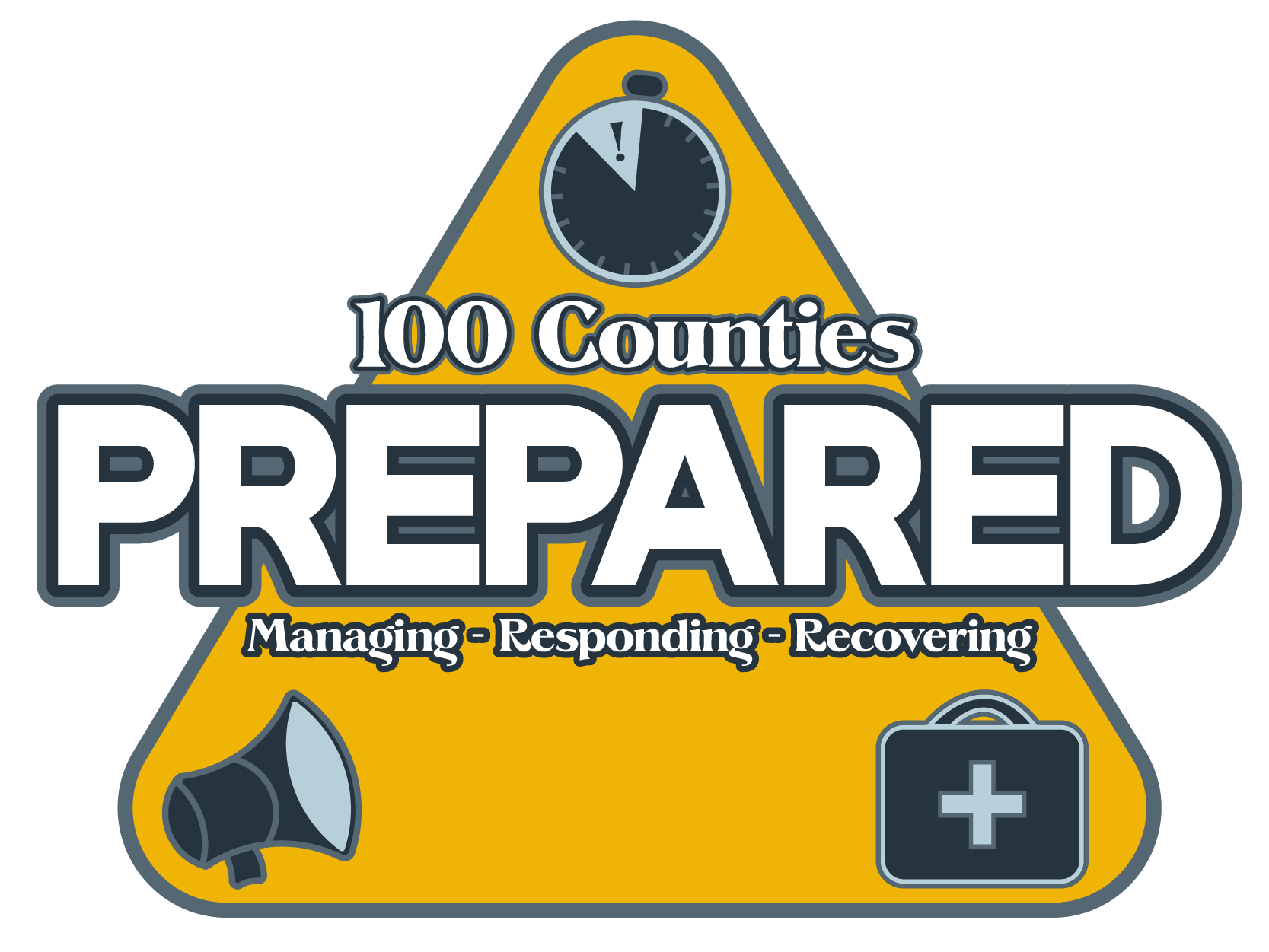
Wake County, N.C. – The 100 Counties Prepared Task Force held its December meeting at the North Carolina Emergency Operations Center this week. The task force was created to lead an initiative announced by NCACC President and Brunswick County Commissioner Frank Williams that aims to equip county commissioners with the tools they need to lead effectively during emergencies. The task force will develop training for county commissioners on how to prepare, respond, and lead during emergencies and will focus specifically on the role of a county commissioner in these situations.
President Williams reiterated his vision while opening the meeting, “When counties are faced with emergency situations, it is critical that commissioners understand their role in the response effort and have the knowledge they need to contribute in productive ways. The work of this task force will help develop a framework for commissioners to become better prepared during these critical times – before the emergency hits.”
The 100 Counties Prepared Task Force convened at NC EOC to hear from NC Emergency Management Director William Ray about how the state responds and supports emergencies in counties. “The partnership NCEM has with counties is always a vital one, but it’s especially important during emergency situations. Our local, state and federal resources, systems and processes are interconnected, and the more we can communicate and collaborate, the more successful we are in all-hazards preparedness, response, and recovery,” commented Director Ray.
During the meeting, NCEM Training Division staff briefed task force members on courses offered to counties by the division, and discussed opportunities for additional trainings to be developed.
Chief of Staff to the University of North Carolina System Norma Houston spoke during the task force meeting to share a detailed outline of the topics she covers in various disaster preparedness trainings she offers for elected officials. Houston is an expert in emergency management, local government ethics, and public purchasing and procurement. She has spent years training local officials through her position as faculty at the UNC-Chapel Hill School of Government and will continue to advise the task force during the year-long initiative.
Led by Co-Chairs Guilford County Commissioner Kay Cashion and Brunswick County Commissioner Randy Thompson, the 100 Counties Prepared Task Force represents counties from across the state and recognizes the range of disasters that can occur throughout the state. Members include:
- Kay Cashion, Task Force Co-Chair, Guilford County Commissioner
- Randy Thompson, Task Force Co-Chair, Brunswick County Commissioner
- Tracey Johnson, NCACC President-Elect, Washington County Commissioner
- Glenn Adams, Cumberland County Commissioner
- Kitty Barnes, Catawba County Commissioner
- Kevin Gordon, Cleveland County Commissioner
- Maria Cervania, Wake County Commissioner
- Hope Haywood, Randolph County Commissioner
- Ann Keyes, Washington County Commissioner
- Teresa McCall, Transylvania County Commissioner
- Linda Rouse Sutton, Lenoir County Commissioner
- Gordon Wilder, Vance County Commissioner
- Kris Noble, Hyde County Manager
- Marche Pittman, Polk County Manager
- Robin Caldwell, Cherokee County Emergency Services Director & President of the North Carolina Emergency Management Association
The 100 Counties Prepared Task Force held its December meeting and will continue to meet every other month and plan to introduce a training program by next summer. For more information on the task force and its work, visit 100countiesprepared.com.
Editors: Print quality photos may be downloaded for use at: https://ncacc.smugmug.com/100-Counties-Prepared-TF-Meeting-December-2021/ Photo should be credited as follows: Photo courtesy Chris Baucom/NCACC.
The North Carolina Association of County Commissioners (NCACC) is a non-partisan organization, which represents the official voice of all 100 counties on issues considered by the General Assembly, Congress, and federal and state agencies. The Association provides expertise to counties in the areas of advocacy, research, risk management and education and leadership training.
###
